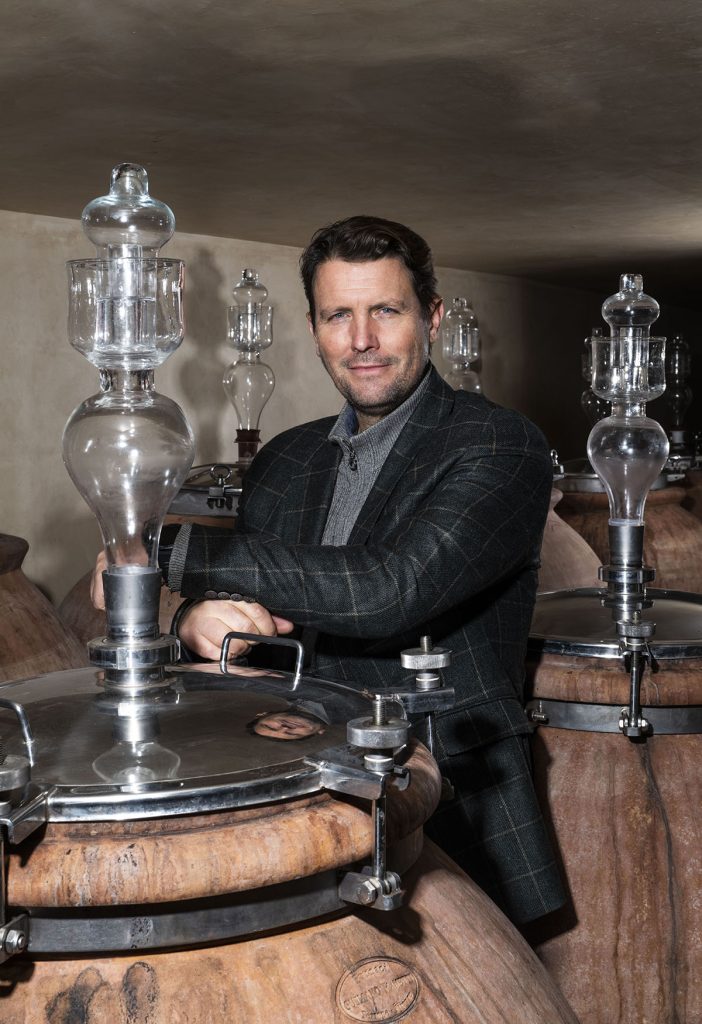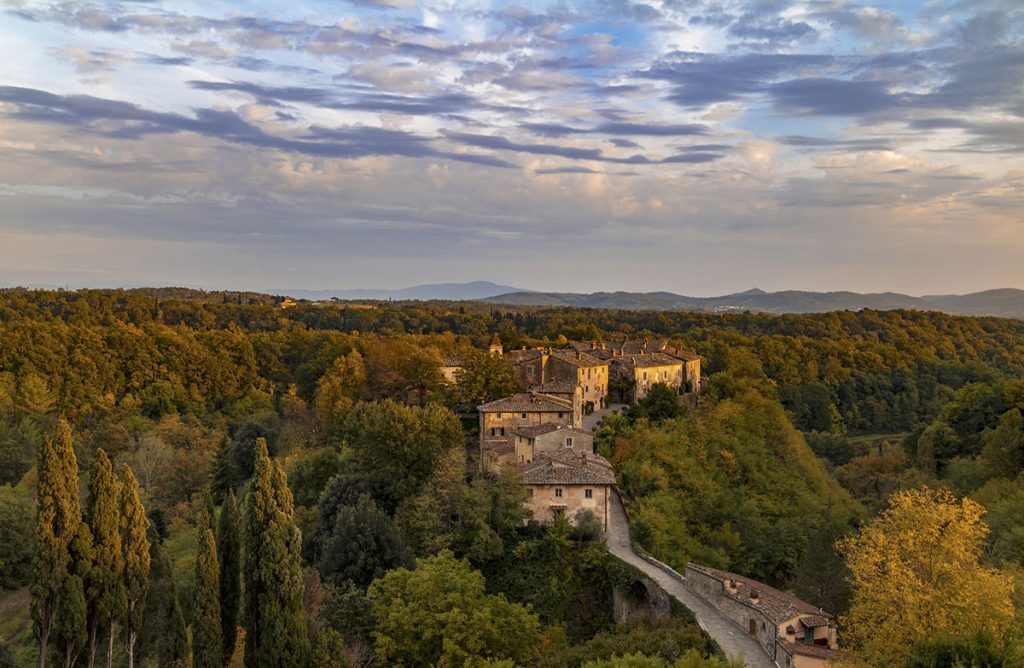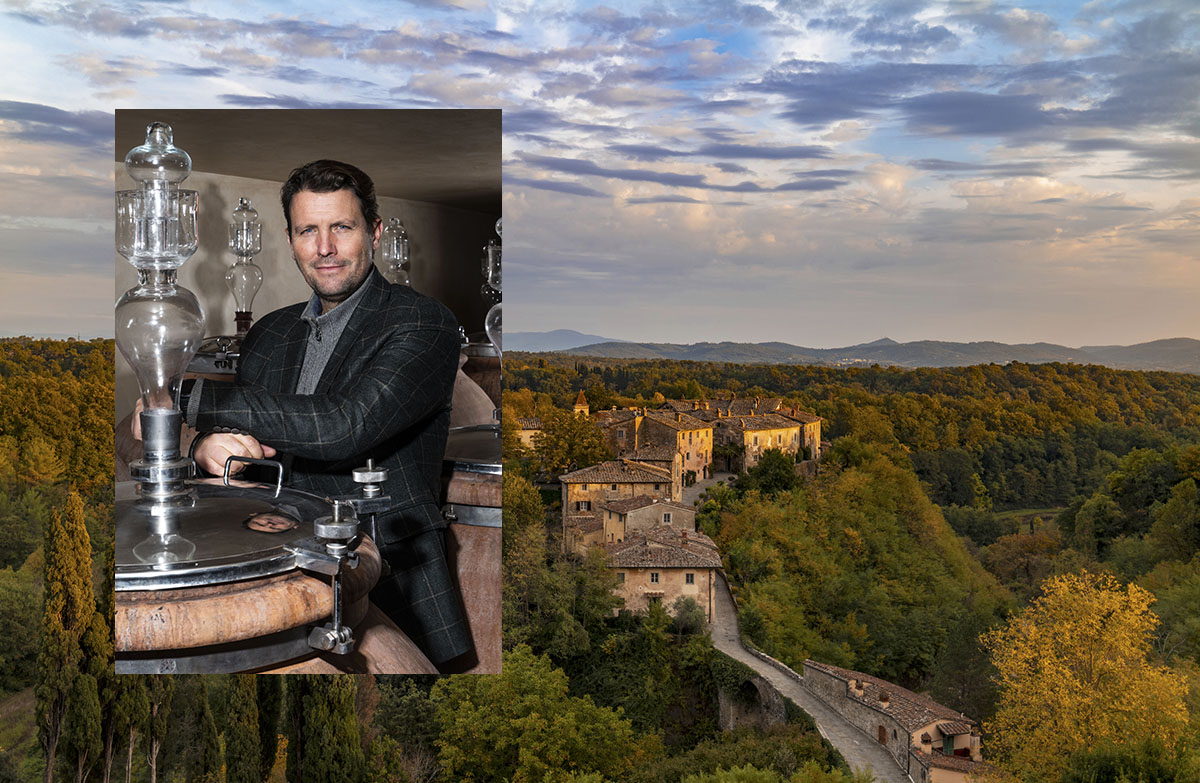Named for his globally famous grandfather, Salvatore Ferragamo II, has built his own reputation as the CEO of Il Borro – a vast restored estate and winery in Tuscany.
Salvatore Ferragamo the younger, worked in the family’s fashion business for several years, moving to Il Borro in 1995 (his father, Ferruccio Ferragamo, purchased it in 1993), where he has been responsible for overseeing the restoration of the estate and the development of its wine and hospitality businesses.
Now celebrating its 30th anniversary, the estate has a successful hospitality business, with a hotel, restaurant, and spa, and Il Borro has become renowned for its commitment to sustainability and its support of local communities.
Here he shares with Esquire Middle East, the lessons he has learned along with way.
I come from a big family. My grandfather, [fashion designer] Salvatore Ferragamo, had 27 grandchildren.
I have the same name as my grandfather, which can bring with it some pressure. But I have always been my own man and I wanted to help contribute to my family in a way other than fashion.

As Italians, we are deeply connected with the history and the weight of our culture. Once I was invited to take part in the 1000 Miglia classic car race. I was in a vintage, open-top, C-Type Jaguar—wearing the vintage goggles and helmet to match. It was then, driving through the Italian countryside, that I realised that my life’s work needed to be connected to the country.
Il Borro is owned by the Ferragamo family, but it is not part of the fashion business. It is my father’s [Ferruccio Ferragamo] own private estate, which we have also turned into a luxury resort, winery and spa.
My father bought the Il Borro property in Tuscany in 1993 and he needed somebody from the family to help him. I was 24 at the time, and I jumped at the opportunity. It really has been an amazing experience, starting from the restoration of the property and the planting of the vineyards.
I’m very proud of having restored the Il Borro property. When we bought it 30 years ago, it was a crumbling, medieval hamlet in the Tuscan countryside that had been abandoned and fallen into ruin. The fact that not only were we able to bring it back to life, but create a series of businesses that give back to the local community and is ecologically sustainable, is something of deep importance to me.

Land is important. It gives you a sense of belonging. At Il Borro taking care of the property and the land remains a priority because it allows the family to provide a sense of place rooted in an authentic Tuscan experience.
It pays off to do things right the first time around. When we first renovated Il Borro we were a little bit too caught up in the ‘Agro-Tourismo’ trend that was popular in Italy. We tried to give the guesthouses this quaint Italian village feel with shared bathrooms and communal areas. Ultimately, it didn’t give us the ‘luxury retreat’ feel that we always knew we wanted to create, so we ended up having to do another total renovation years later in order to get it right.
Not having a plan has actually been part of our success. The development of Il Borro comes from a lot of trial and error, and learning. We didn’t initially plan to be making our own wine, or olive oil, or even to be one of the first properties to be certified with a carbon negative footprint. Over the past 30 years we have experimented and used the learnings of those to inform our future decisions.
In the ’90s everybody was making wine. All the top-quality hotels in Italy were offering their own wine, so I thought: ‘we have the land; we have the climate; we have a variety of soil types, so why not?’ I had to convince my father but, thankfully, our first pressing was actually pretty good.
Now we have 14 different labels and it is a very successful part of our export business. All our wines are produced with organic sustainability. And we have some fun practices. For example, we released predator insects to fight the red spiders, who like to make holes in our grapes.
At first we thought solar power was a bit of a scam. We were really quite skeptical when it came to installing solar panels, because we were being pressured by the government who had signed on to the Kyoto Agreement. However, after converting a small plot of land into a solar field, we were generating so much energy that we ended up selling two-thirds of it back to the energy grid! The whole experience helped change the way we thought about sustainability.
People don’t properly appreciate olive oil. Most people will pay AED500 for a bottle of good wine, and then will drink it in about 30 minutes, but despite being comparable in terms of how it is made, olive oil is given such less appreciation. Those same people will not likely spend AED250 on a bottle of top quality olive oil, even though it would last them a month.
In a world that moves at a million miles per hour, it is important to stop and really appreciate the freshness of vegetables.
